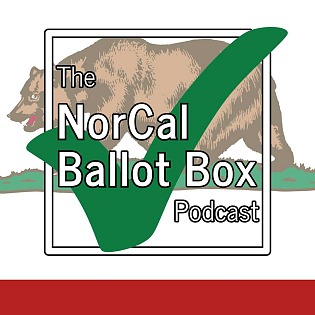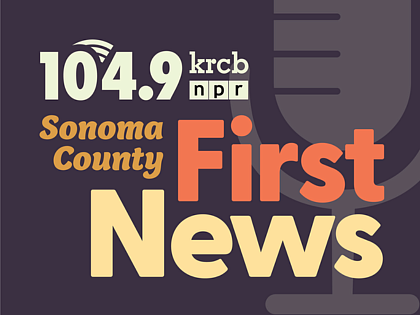
- Written by: Bruce Robinson
Fears and stigmas deter many people from seeking help with mental health problems. A public television documentary is working to help counter that. Bruce Robinson spoke with some of the people who made it.
Among the vignettes featured in A New State of Mind, says producer Stephanie Locher, are two contrasting stories of returning war veterans.
A New State of Mind, Ending the Stigma of Mental Illness will be shown on KRCB-TV on Monday, May 12 at 9 pm. Watch the trailer for the program below.
Read more http://radio.krcb.org/post/tv-documentary-counters-mental-health-stigmas
- Written by: Bruce Robinson
Just in time for Mothers' Day Weekend, a state-wide push to expand sick leave benefits for working women is getting under way. Lori Abbott has this report.
Read more http://radio.krcb.org/post/mothers-seeking-paid-sick-leave
- Written by: Bruce Robinson
Global Fair Trade items include many foodstuffs, with coffee and chocolate leading the way. They all are getting some extra attention tomorrow, as Santa Rosa’s Fair Trade campaign hosts a special sort of Bake-off.
Click here to find out more.
Read more http://radio.krcb.org/post/bake-fair-boost-world-fair-trade-day
- Written by: Mark Prell & Capital Public Radio News
ALSO: Lawmakers continue to revise California’s campaign finance regulations. Two bills were moved forward Thursday that seek to tighten the rules.
Friday, May 9, 2014
Today's reporting by Katie Orr.
Read more http://radio.krcb.org/post/compromise-reached-california-rainy-day-fund
- New Library Chief on the Way
- Public Schools Week Is Back
- Judge Rules Realigned California Felons Should Be Eligible To Vote
- The Curious World of Carnivorous Plants
- Peeking Inside Distant Galaxies
- California's Largest Healthcare Workers Union Drops Two Fall Ballot Initiatives
- Calls Mount for Carillo's Resignation
- National Recognition for Local Boys Girls Clubs
- Law Enforcement Officers Kill In Line of Duty Honored
- Why Palliative Care is Growing
- A California Proposition Would Create 'Supportive' Housing for Homeless Veterans
- Village Building Convergence Comes to Sebastopol
- Remembering Bill Schaadt
- Wistful Speaker John Perez Looks Back, Defends Record
- Students Gear Up for Robotics Challenge
- Water Theft Concerns Officials
- Turning On Sonoma Clean Power
- Opponents Remain as Common Core Nears Implementation
- Sustainability in Local Government
- Clean Water Advocates Call Proposed Recycled Water Rules 'Permissive'
- Simulating Cuba at the International Model UN
- Analyzing 'The Good Company'
- Greenery is Good For You
- Latest Numbers Show California Graduation Rate Up
- Wine Brand Takes on Student Load Debt
- New State Drought Orders, Requests From Governor Brown
- Local 'Wretch' Heading for Edinburgh
- Net Neutrality At Risk
- California Bill to Tackle CEO to Worker Pay Gap Clears Committee
- Final Cadences for Choral Conductor Dan Earl
- Sorting Out 'The Galapagos Affair'
- Revisiting the Ideas of Rudolph Steiner
- What is Behind Sonoma County's low Vaccination Rates?
- Road Trip Touts Overturn Citizens United Act
- Whooping Cough on the Rise in Sonoma County
- California Senate Getting Extra Ethics Training
- Hound Hunting Ban Targeted For Repeal
- Bad Behavior and Social Media
- Drought Drive-ups, Town Hall Meetings Set
- Classic Bike Rides in Northern California
- New Senior Village Network in Petaluma Seeks Members
- Expanding Graywater Use in Marin
- Five Years of Boosting Energy Efficiency
- Are we seeking a spike in Santa Rosa bike thefts?
- Fish Are Focus of Legislative Forum
- Cultural and Creative Arts Forum
- Freight Trains Coexist with SMART's Track Reconstruction Work
- Input Invited in SR City Manager Search
- New Teacher Dismissal Bill Deal Has Governor's Support
- Watching the 'Heartbleed' Bug
- 'Taking My Parents to Burning Man'
- California to Hold First Public Workshop On Lead Ammo Ban
- Dry times hard on bees
- Brook Haven Students Aim for Zero Waste
- Low-Income Californians Pay More State and Local Taxes Says Study
- The Consequences of Adverse Childhood Experiences
- Sonoma Ranked 12th Healthiest County in California
- Comion OUt Party for New C-Media Center
- Lawmakers Consider A Medical Interpreters Bill For A Second Time
- Finding a Future for Palm Drive Hospital
- Indigenous People's Group Seeks Wider Support
- Russian River Project Earns Restoration Award
- Entreprenoma's Market Day Debuts
- New Study Ranks California's Election Performance
- Brain Health Registry
- Homeless Survey to ID Most Vulnerable
- Senator Yee Indicted on Eight Counts
- 'The Soil Will Save Us'
- Updating Cloverdale's Old Time Fiddle Festival
- California Bill Would Re-Classify Human Trafficking as Gang Crime
- Drought driving up feed, milk prices
- Phillipine Medical Mission
- California Bill Would Require Public Schools to Stock Allergy Injectors
- The Sour Effects of Sugar-saturated Drinks
- Postal Workers Protest Staples Deal
- Sierra Snowpack Still Far Below Normal
- Recruiting Bioscience Businesses
- Holiday Foolishness in Occidental
- Power Bills Go Down For 12 million Californians
- Raising Orphaned Beavers
- Evans' Bill Seeks GMO Food Labeling
- Graton Day Labor Center Celebrates 13 Years of Activism
- The Lost Landscapes of San Francisco
- Tsunami Preparedness Week
- Understanding Dyslexia
- SAY's Dream Center Advances
- Santa Cruz farmer hacks tomato genome to develop a Monsanto-free Early Girl
- Medical Marijuana Study Gets Federal Green Light
- 'Twenty Years Behind Bars'
- Drought Resistance Underground
- 'Carma' Carpooling App Gains Traction
- California's Recycling Goals Also Create Jobs
- The Economics of Rainwater Catchment
- Dutra Foes Seek Appeals Court Reversal
- Rainwater Catchment Systems
- Cost breakthrough for water desalination
- In Marin, an innovative project to turn food waste into renewable energy
- Fasting for Immigration Reform
- To get Buffalo Mozzarella Outside of Italy try Tomales
- Made Local, Volume 2
- Democrats Lose Super Majority in California Senate

 Live Radio
Live Radio








